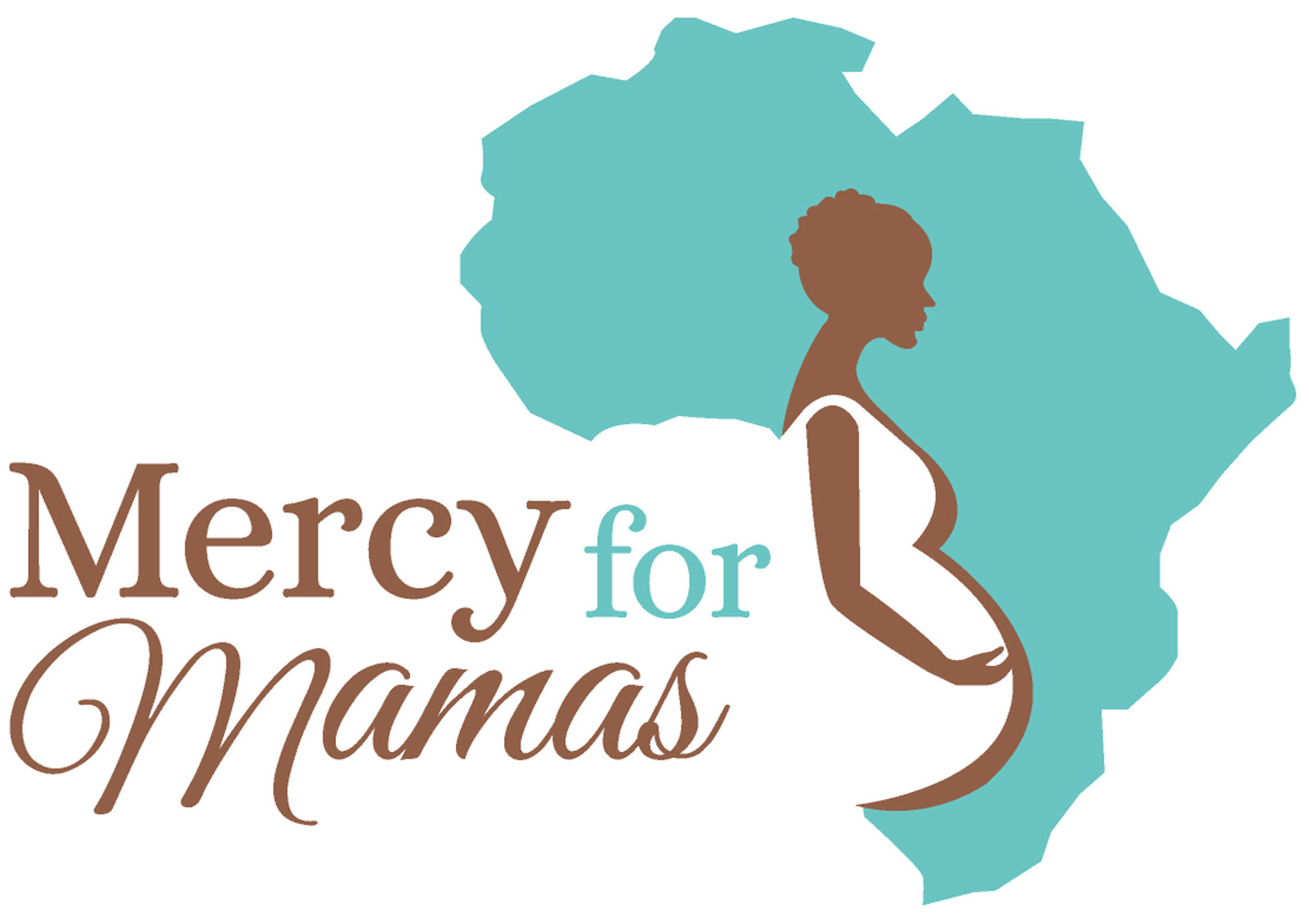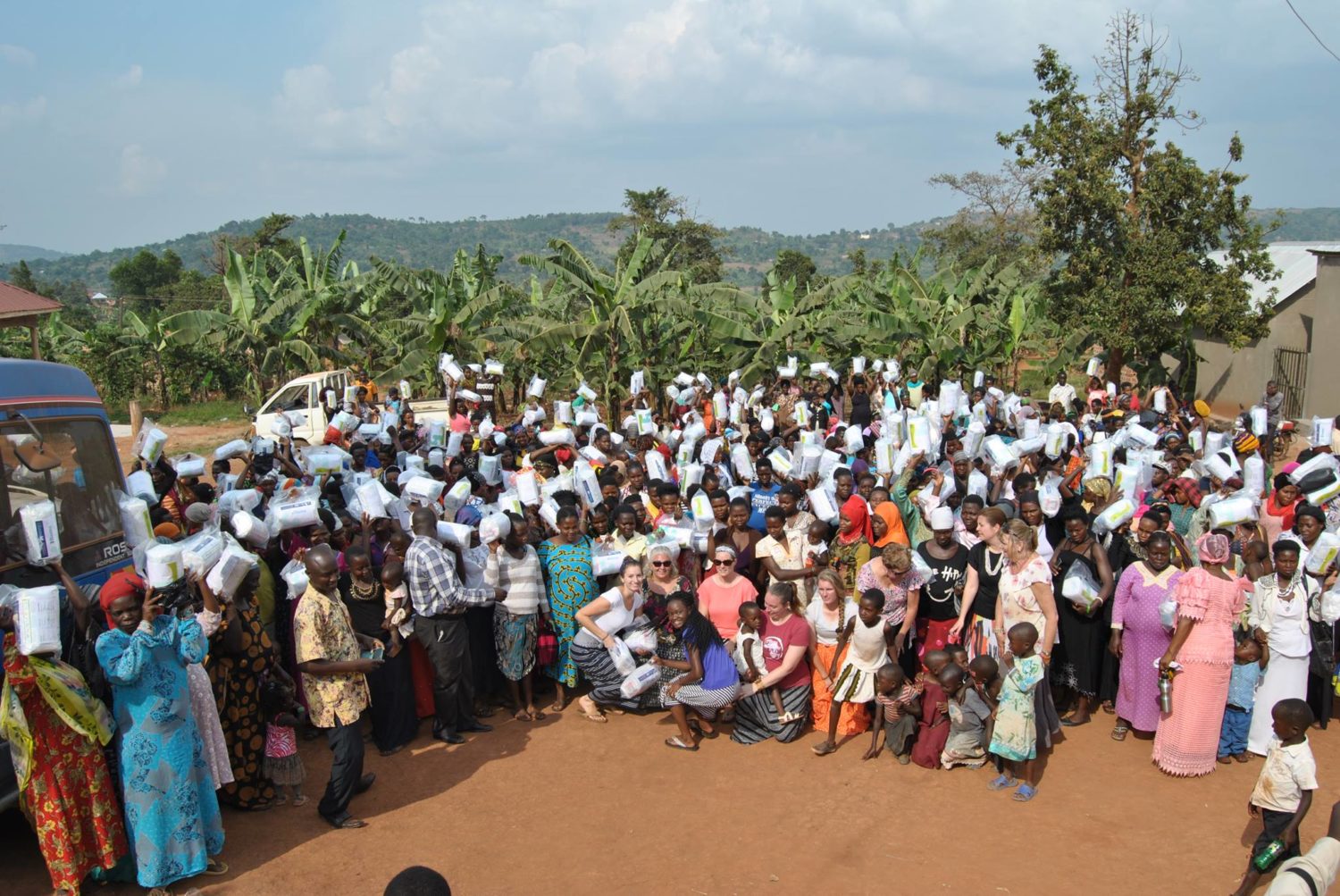**The following post is written by Mercy for Mamas board member Kristine Smith. Kristine traveled to Uganda last month with Melissa to scout out some new partners and check on the work going on in Uganda.
===============================
Since I have returned from my February trip to Uganda with Melissa, I have been sharing the stories of our trip with anyone who will give me the opportunity. I am finding myself desperate to share the cause of Mercy for Mamas because I have seen women and children who have been touched through this work. I have met the babies who were born using the simple supplies and heard the mamas give their sincere gratitude for this small, but powerful kit.
 |
| Kristine passing out mama kits to a group of ladies in Fort Portal |
As an intensive care nurse, I take for granted the millions of dollars in life saving treatments that are at our disposal in a large university teaching hospital. We have procedures, machines and knowledge that has put emergency and intensive care in the U.S. as the best in the world. As we have reached the pinnacle of advancement in saving lives from trauma, cancer and chronic illnesses, new emphasis is being placed on preventative care. Prevention is being hailed as the new focus because it is cost effective, increases survivability and can reduce the side effects from the treatments and medicines that affect people with chronic conditions. I believe that preventative medicine can make an even bigger impact in the places in the world that are out of the reach of advanced critical care.
Many people do not realize providing third world nations with a higher level of health and wellness is an insurmountable task. For what we categorize as common chronic conditions in the U.S. that are easily monitored and managed, in Uganda there is little to offer. If I go to the diabetic Ugandan man and offer him insulin to lengthen his life… where will he find a glucometer to check his blood sugar and dispense the accurate amount of insulin? If he is lucky enough to get a donated glucometer, how will he afford the batteries? Where will he get more insulin and more needles? Does he have a watch or cell phone to accurately time his medications? Prevention of serious illness and disease can be a powerful tool in reducing mortality for those who have limited access to advanced healthcare.
Let me share with you the story of Martha* whom I met while staying on the island of Lingira. This particular island is a two hour public boat ride from the mainland of Jinja. An American nurse and a small scarcely stocked clinic are their only contact with healthcare professionals. During dinner, the nurse received a phone call from the school saying there was a 14 year old girl who was having chest pain. She asked me to come along and we went supplied with a blood pressure cuff, a malaria test and a stethoscope. Walking in the dark with only our headlamps to light the way, I felt a little uneasy imagining what we might find and what our limited arsenal was up against.
 |
| Walking up to one of the villages on Lingira |
Unfortunately, I didn’t need to perform any detailed assessment with our equipment to see that this girl was sick. Her eyes were swollen almost completely shut. She had swelling all over her body. Listening to her heart sounds there was an obvious arrhythmia, her heart muscle was not effectively squeezing. She spoke in barely a whisper, complaining of a crushing pain in her chest. The nurse called a doctor in the city despite the late hour and told him a student needed to be seen first thing in the morning. He agreed to see her and predicted she would most likely need an ultrasound on her heart. The headmaster of the school called the girl’s father and told him she was very sick and needed to take the 2 hour boat ride to the doctor. To further persuade him, the headmaster offered that we had chartered a boat for the morning and would gladly let her ride with us and give her transportation to the doctor’s clinic. The conversation ended and we prayed that this girl would be given the life saving treatment she needed for heart failure.
When I awoke on the island the next morning, I quickly found our host to ask her if we would be taking the girl with us on our boat. She told me that the father had declined to seek treatment for her. The headmaster sent her home to her village since she was not well enough to attend school. I was overwhelmed with sadness imagining if she would last a month or maybe a year in her condition. I felt so limited and powerless to change many of the desperate medical issues we saw, but I found hope in work that is being done through Mercy for Mamas.
 |
| Kristine helping with prenatal exams |
Mercy for Mamas is taking on a devastating health concern in Uganda. It’s hard for us to grasp the dangers of childbirth that these women face. Here in the U.S. when a friend becomes pregnant the emotions we share with them are filled with happiness and joy. I don’t expect that 1 in 35 of my female friends will die from pregnancy and childbirth complications. When I see a friend post on Facebook that she is in labor at the hospital, I don’t worry if the doctors will wash their hands, if the instruments will have been sterilized or if she will have access to an operating room should a caesarean section become necessary. With over half of women in Uganda giving birth without medical personnel present, these mama kits give these women access to supplies that seem so simple like gloves, soap, cotton wool, and cord ties. In 1847, Dr. Semmelweis reduced maternal mortality by 90% after introducing required hand washing by the physicians. Mercy for Mamas is fighting this same fight in Uganda for their mothers and babies. Nearly 20 women die every day from childbirth and its complications. The two main causes of death for these women are bleeding and infection. Even those women fortunate enough to give birth in a hospital setting in Uganda still must bring their own supplies. In addition to the kit, Mercy for Mamas encourages their partners who distribute these mama kits to provide prenatal exams and education on delivery, nutrition and breastfeeding.
 |
| A delivery room at a very nice new clinic in Uganda provided by Project Hopeful |
 |
| This little sweetie was born a few months ago using a mama kit |
The same morning I learned that young Martha would not be joining us on the boat to the mainland, we walked to a village on the island that did not have access to clean water or sanitation. We sat in very small hut and held a 5 day old baby that had been delivered with the help of a mama kit. We stood on the same dirt floor that just days before a mama lay giving birth to her precious little one. The plastic drape in the kit that had served as a safe barrier from the dusty dirt floor had been washed and kept as one of her few possessions. This $7 kit contains more than just basic supplies, it is the gift of prevention from death or illness from bleeding and infection. There is hope and healing in these mama kits– hope that expectant mothers in Uganda will survive childbirth and hope that they will get to hold and rock their own babies.
~Kristine





